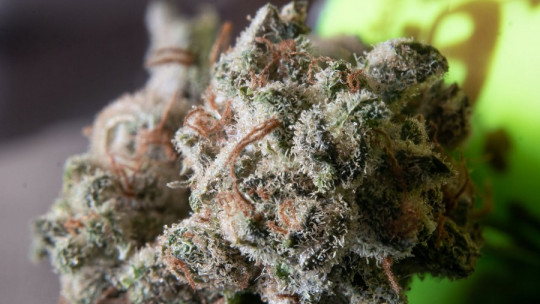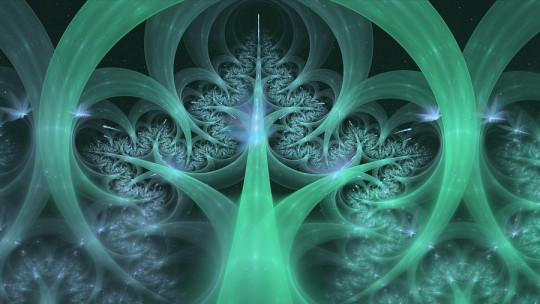
Marijuana consumption involves several changes in the body, many of them well known in the popular idea of what a consumer of this substance looks like.
After smoking cannabis, the heart rate accelerates, the blood vessels dilate, the eyes become red and blood pressure increases, among other organic symptoms.
However, it is not just physical changes that marijuana produces. Those who consume it also present mental alterations, as a result of this drug altering brain chemistry and functionality. In this article we will see, mainly, what are the effects of marijuana on the nervous system
The effects of marijuana on the nervous system (classified)
Also called cannabis, marijuana is a grayish-green mixture of dried flowers and leaves of the hemp plant. Cannabis is believed to be native to central and southern Asia and there is evidence that the Assyrian people used it in religious ceremonies, calling it “qunubu”. Since time immemorial, this drug has been present in all types of religious rituals around the world
There are many names by which this drug is known, there being more than two hundred terms to designate them: maria, herb, pot… The word “marijuana” is the term with which Mexicans called the drug. cannabis indica. It is a species belonging to the Moraceae family and has the appearance of a thin nettle. It reaches a height of about 1.80 m and can be grown anywhere where it is a little warm.
The psychoactive properties have made the marijuana plant used in many contexts, especially for recreational purposes medicinal and, more modernly, industrial (as raw material).
Tetrahydrocannabinol
The main psychoactive compound in marijuana is tetrahydrocannabinol (delta-9-tetrahydrocannabinol, THC) It is not the only component of cannabis, as this is one of the 80 different cannabinoids that we can find in the marijuana plant. However, this is the most important when talking about the effects of marijuana on the nervous system.
There are several ways in which the substance can be consumed, each of them with different implications but with very similar effects. Whether smoked, vaped or ingested, the cannabinoids found in the plant interact with various receptors in the brain and body, which are part of the endocannabinoid system. It is for this reason that the consumption of the plant generates different symptoms and signs for those who consume it.
The membrane of some nervous system cells contains protein receptors that hold THC. By interacting with these receptors, THC produces a wide repertoire of effects on the body, including feelings of euphoria, joy, relaxation, cognitive slowing.
Not all cannabis plants produce psychoactive effects. There are strains of cannabis used to produce industrial hemp, which contain less than 1% THC and are not suitable for recreational consumption.
Main effects of cannabis
As mentioned, marijuana has psychoactive effects, which is the main reason why those who consume this plant consume it. This drug has been taken since ancient times for its physical effects and, more specifically, for its psychological effects. The effects of cannabis on the brain involve changes in perception, positive moods and short-term euphoria Its consumption also increases appetite and induces the feeling of being “high.”
However, it also brings side effects that can be very unpleasant. These include short-term memory loss, motor slowing and incoordination, and anxiety, along with less psychological symptoms such as redness of the eyes and dry mouth. In the long term, marijuana damages the brain, decreasing concentration and other cognitive abilities in general, in addition to causing addiction.
1. The amotivation syndrome
One of its most common effects but at the same time less known by consumers is amotivation syndrome. Although it has been stated on many occasions that marijuana is a harmless drug, The simple fact that it is a drug is something that affects the body There are many negative effects and among them is precisely this amotivation syndrome, whose symptoms coincide with the idea that one would have in mind of what a marijuana addict is.
This syndrome presents the following four phases. The first thing the consumer feels is euphoria, a feeling of great happiness and relaxation He feels fluent in conversation, he talks and talks. Fantasy is also stimulated.
After the euphoria come the hallucinations. What were initially mere fantasies now take on disturbing content Notions of time and space are being lost. The consumer feels many emotions at this stage and the mood changes can be very sudden and intense. If marijuana has been taken with alcohol, this phase becomes more intense.
In the bliss phase the consumer feels good, with a pleasant sensation of tranquility and peace There is no fear, but there is no desire either. She is falling asleep little by little.
Finally, the consumer falls asleep or is completely unable to do any hours for a few hours

2. Subjective effects of marijuana on the brain
Depending on how it has been consumed, marijuana has effects of different durations. If it has been inhaled, the subjective effects begin after a minute, while when smoked, the maximum effects are reached after thirty minutes. The duration of these effects is four hours if it is inhaled and eight if it has been ingested orally.
The effect that consumers notice most is the alteration of the sense of time It makes them feel like the minutes and hours are longer than they really are. Marijuana has an effect on the hearing centers of the nervous system, something that is evidenced by an increase in hearing sensitivity and a more vivid appreciation of music by its consumers. It is also common for consumers to notice a subjective increase in the senses of touch, taste and smell.
In general, the effects of marijuana on the nervous system They depend on the form of ingestion and the amount of the main active ingredient taken THC does not dissolve in water, so it can only be consumed through ingestion and inhalation.
3. Acute marijuana intoxication
Acute marijuana intoxication involves several psychological effects. Symptoms may include paranoid ideas, illusions, hallucinations, delusions, depersonalization, confusion, agitation and excitement. There may be delirium and obtundation with agitation and violent excitement. All these effects will end up passing after a few hours, as long as the marijuana consumption does not escalate and is not combined with other substances.
No matter how much folklore and tradition marijuana has, it is still a drug and as such induces effects on the nervous system, some of which are very serious. Users of this substance can exhibit extremely dangerous behaviors, both for themselves and for others, depending on different factors such as the amount of THC ingested and personality aspects. Acute poisoning can cause mood changes and negative emotions such as anxiety, fear and panic.
The effects of marijuana on the central nervous system are serious, so much so that The consumption of this substance has been related to an increase in mental pathology in youth Using marijuana increases the risk of a psychotic break. The increase in panic attacks and anxiety attacks is related to habitual use of the substance.
4. Effects of on brain development
The study of the effects of marijuana on brain structure with neuroimaging techniques shows varied results. Some of them suggest that the habitual use of this drug during adolescence is associated with alterations in connectivity and a smaller volume in certain specific regions of the brain involved in executive functions such as memory, learning, and impulse control.
Scientific research indicates that marijuana use can cause functional impairment in cognitive abilities. However, this deterioration will vary depending on the age at which the consumer began taking cannabis, the amount of the substance ingested and the duration of consumption.
The endocannabinoid system is believed to play a large role in the formation of synapses during the early stages of brain development which would explain why marijuana consumption, with substances that affect this system, would alter cognitive aspects during adolescence.
A study in New Zealand found that frequent marijuana use starting in adolescence was associated with a loss of between 6 and 8 IQ points by mid-adulthood. In this same study, people who used marijuana regularly during adolescence and stopped taking the drug as adults did not recover the lost IQ points.
In the study, people who had only started using marijuana as adults, whether heavy or not, did not lose IQ points. This suggests that marijuana has a greater long-term impact on adolescents, whose brain is still in formation, establishing new connections and maturing in other ways, than in adults whose brain is already practically mature. This does not mean that there is a causal relationship between marijuana consumption and IQ loss, but it would have implications for the long-term cognitive area of the most premature users.
- You may be interested: “Substance use in adolescence: risk factors”
5. Why does marijuana impair memory?
Marijuana impairs memory because THC affects the hippocampus. This structure is the area of the brain responsible for forming memories and processing information. Most of the data supporting this claim has been done with animals, especially rats.
Studies with rats exposed to THC before birth showed that, shortly after birth or during their adolescence, they showed notable difficulties in specific learning and memory tasks Cognitive deterioration in adult rats exposed to this component during adolescence was associated with structural and functional changes in the hippocampus, a brain area involved in memory.
Studies with rats also show that exposure to THC during adolescence involves alterations in the reward system, which increases the likelihood that an animal will try to obtain other substances and fall into other addictions. This would be the physiological explanation for why many adolescents who use marijuana as their first or initial drug end up turning to other substances such as cocaine, tobacco or alcohol.
As humans age, our hippocampus loses neurons and this affects the ability to learn new information Using marijuana means exposing yourself to THC, which, if done for a long time, will end up accelerating the loss of neurons in the hippocampus, causing premature memory loss.
In a study with rats exposed to THC every day for 8 months (30% of their life expectancy) they showed a loss of nerve cells at 11 or 12 months equivalent to that of rats twice their age that had not been exposed. exposed to this substance.








